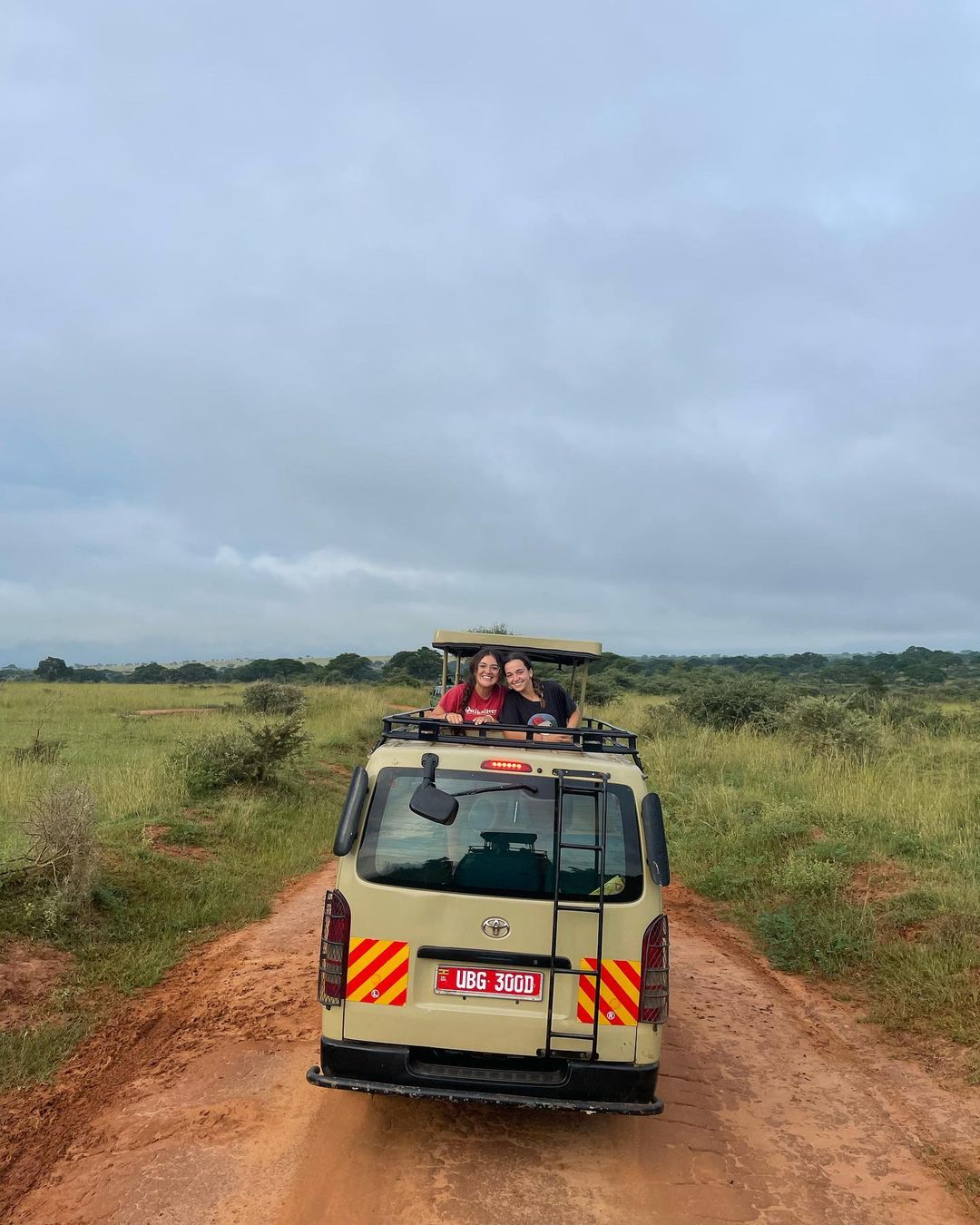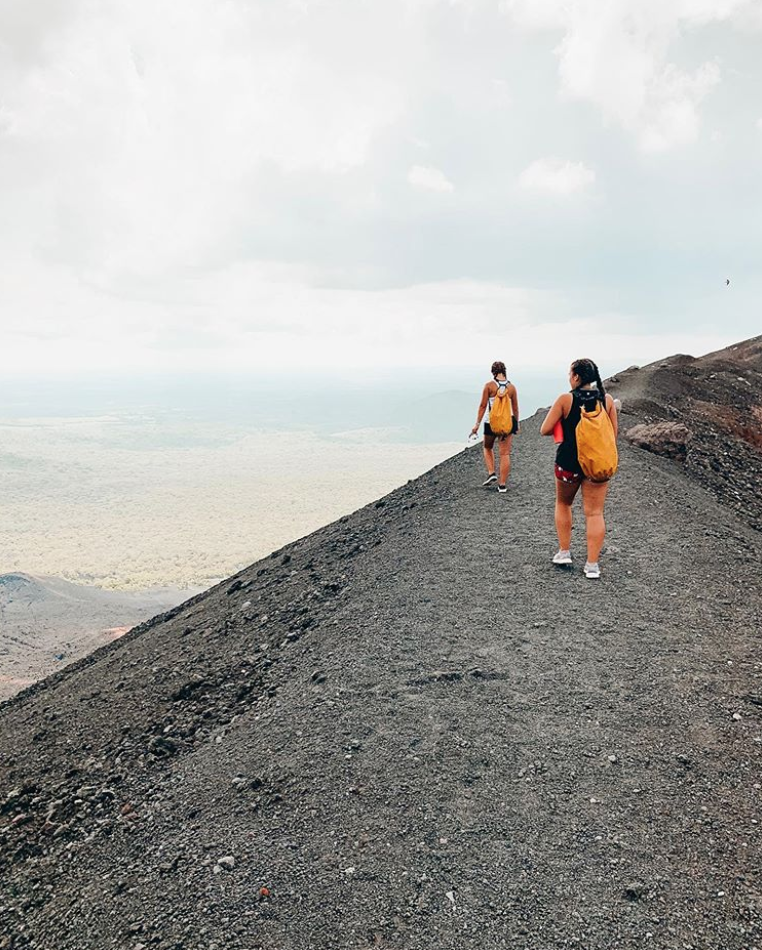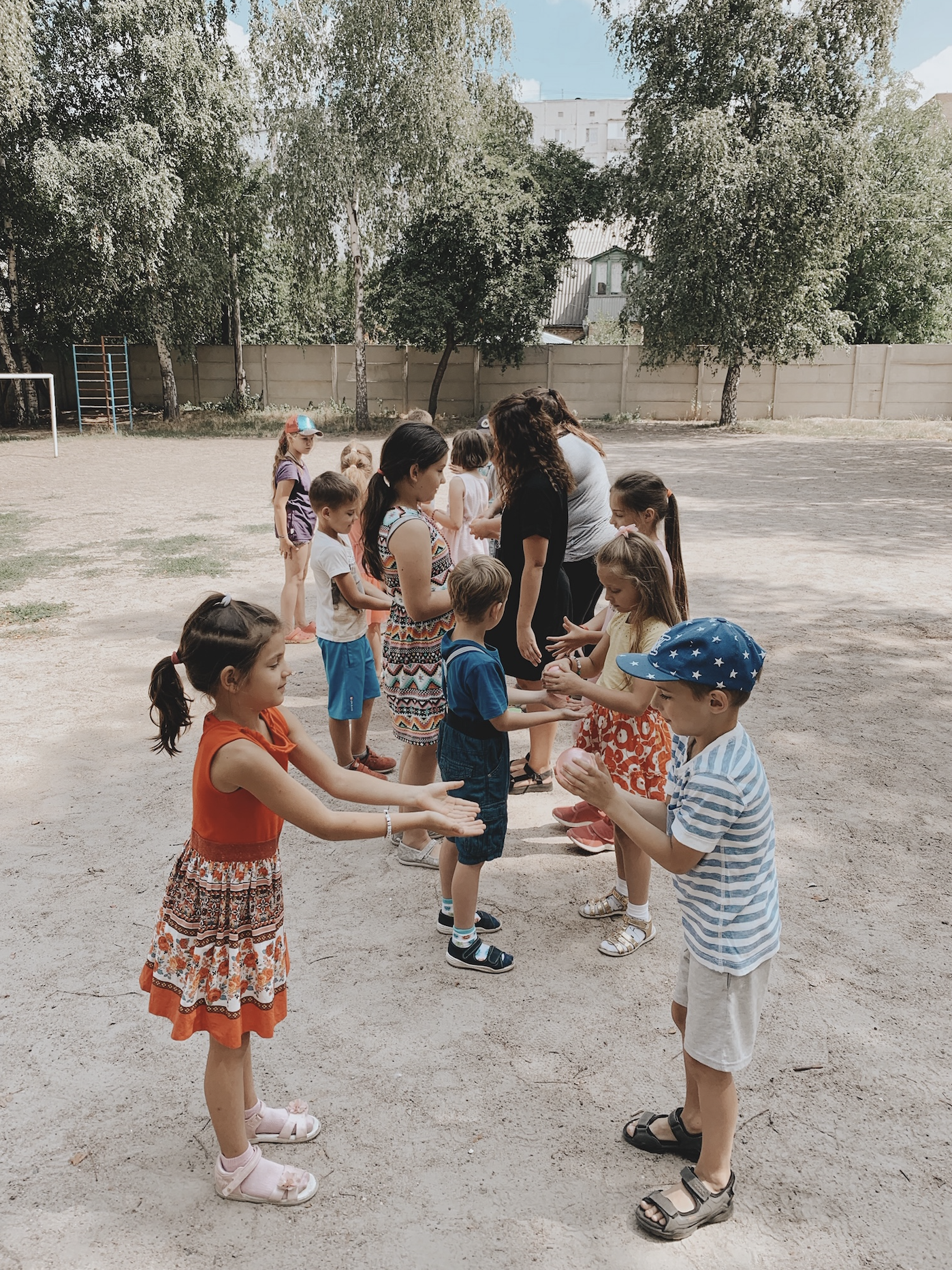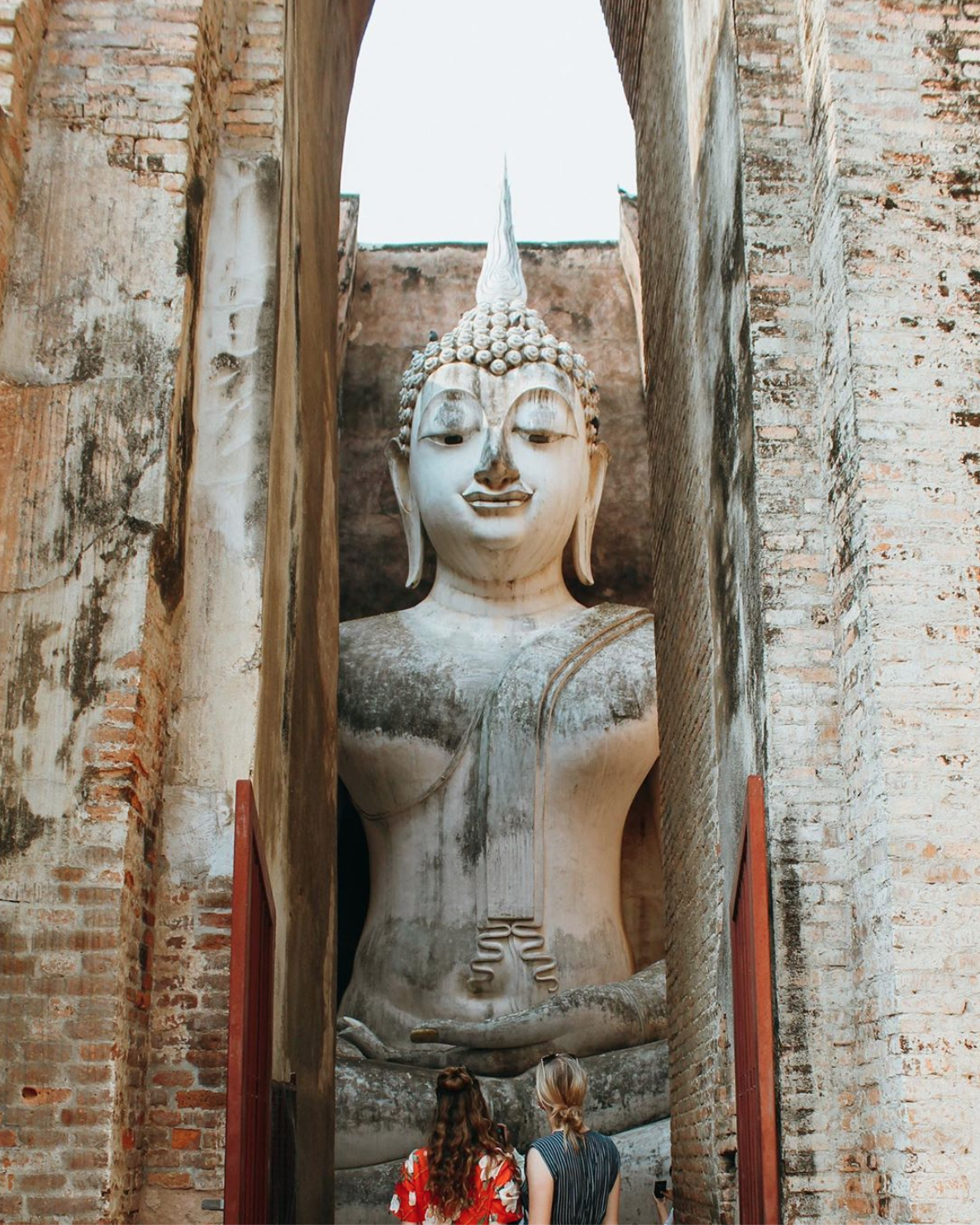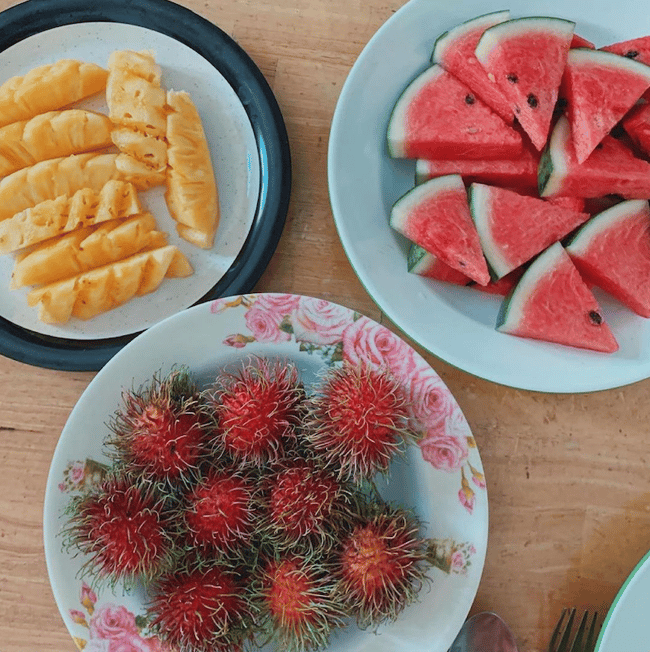
Wondering how to make traveling work with food allergies or dietary restrictions? Here’s what I experienced in Asia (and what other ILP volunteers had to say about their semester).
If you’re anything like me, so much of the travel experience is about the food — I am all about trying new cafes, finding favorite street foods, and wandering grocery stores in foreign countries.
Even when I was traveling with some dietary restrictions, I found ways to enjoy the local treats, snacks, and desserts … which is a pretty common question! At the ILP office, we get a lot of questions about how a semester abroad will work with someone who is eating vegan or vegetarian or is avoiding gluten, dairy, or another food allergy.
Not an ILP volunteer yet?
See what volunteering with ILP is all about
No matter where you go with ILP (we have programs in Europe, Asia, Africa, Central America, South Pacific, The Caribbean, etc), several things are included in your program fee — like your meals. Each ILP volunteer location provides three meals a day, which brings up the question about what that looks like for volunteers who will be traveling with a dietary restriction or food allergy.
This post is here to help you out, especially the last section on "how to prep for your semester", so you can be as prepared as you can for your ILP experience.
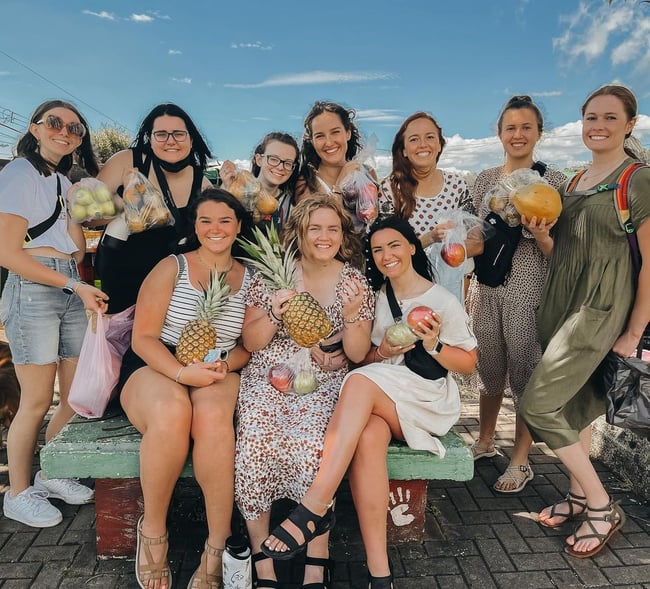
Hear From Other Volunteers
It can sometimes be tricky but know that volunteers with a wide variety of dietary restrictions or preferences have successfully completed their semester abroad. If you approach it right and prepare before departure, you'll be able to have a great experience without your dietary restrictions or preferences getting in the way — like these volunteers! We’ve heard from a handful of alumni about their experiences while abroad that may help you know how to navigate things for your own semester.
Even if you’re not volunteering in that same country or part of the world, there are pieces of advice that are applicable in every location:
Eating Veggie/Vegan
On Shalynn S’ semester there was someone in her group eating veggie, with this to share: “The schools definitely serve some meat, usually always white rice with it so she eats a lot of that. Eating out she learned how to say “no meat” in the local language and that’s worked pretty well (though there are times that that's not understood and she gets meat). She does spend a little (extra money) on bread, nuts, and fruits. She says her main thing is getting full is difficult cause there isn’t a lot of no meat options, salads tend to be small but she usually always finds something. I highly suggest bringing protein bars, maybe even powders anything you may use at home you probably can't get here.”
Another volunteer had this to say “I’ve practically been a vegetarian while I’ve been here in Asia ... I eat a lot of white rice with soy sauce. I brought protein bars, instant mashed potatoes, and granola bars with me. I also eat a ton of apples and peanut butter! Bring seasonings for noodles! They sell instant noodles that come with flavoring and seasoning and I just don’t put in the little bits of meat that come with it. The hardest thing for me with food has been getting full."
Madi B had this to say about her time in Europe when it came to choosing things while eating out — “I was totally vegan at the time, could always find like cucumber/avocado sushi or good rice/potato and veggie dishes, tons of fresh fruit on every street and finding mango sorbet”.
I was eating vegetarian while visiting Thailand which meant picking around the meat in curries and stir-fries, and relying on rice to help fill me up. I was so glad I packed peanut butter, granola bars, and had some spending money for fruit to help me feel full.
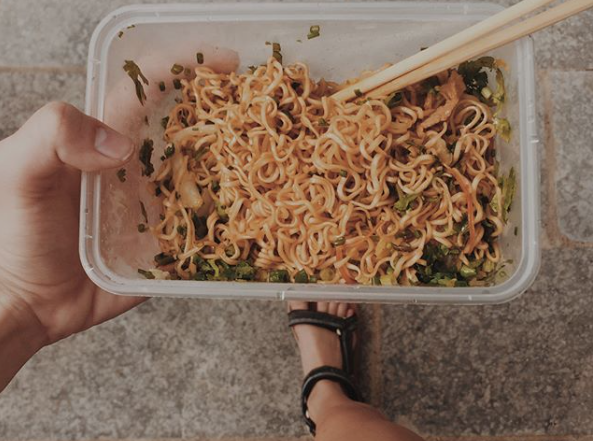
Eating Gluten/Dairy-Free
Needing to avoid gluten while traveling abroad is something one of our ILP directors has personal experience with. Jared's been able to make it work in every location we have programs in during mid-semester visits, but does mention that it's helpful to understand the local cuisine so you know what staples you can rely on (like rice noodles, rice, buckwheat, etc) and which ones you need to skip out on (wheat-based pasta, bread, etc).
Savannah M. shared that for her, “eating out is a little bit harder but a lot of places have rice noodles and rice dishes. Make sure you bring some snacks from home! My gluten-free pretzels saved me haha! Just plan on spending a little bit more on food when you’re eating out”

A Few Things To Know
Dietary restrictions or preferences will likely be difficult to deal with in a foreign country, but can sometimes be made easier depending on where you are volunteering (you'll find fewer dairy options and dairy-based dishes/ingredients in places like Asia than you will in Europe, for example, where lots of dishes contain sour cream, yogurt, butter, or milk).
Food Selection
Just keep in mind that traveling in general means that the selection of food might already be limited by your tastes and finding accurate or exact information about the ingredients and/or preparation of the food you are provided can be difficult (or even impossible).
Food Labeling
Another thing to keep in mind: Food labeling in foreign countries may be inaccurate or incomplete. Many countries don't require food producers to list allergy ingredients in trace amounts, which can be a concern if you’re sensitive to cross-contamination. Keep this in mind when ordering at restaurants, food stands, or purchasing packaged items.
With all of this in mind, we have a few pointers for how to best prep for your semester abroad if you keep reading:
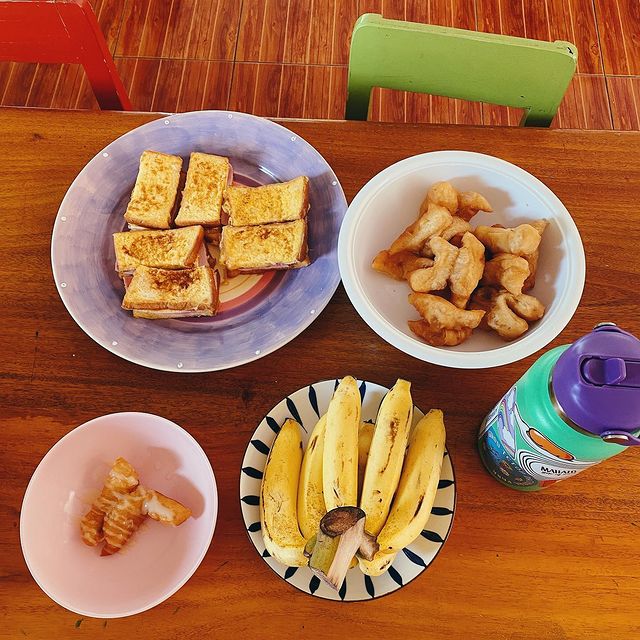
How To Prep For Your Semester
Depending on the nature and strictness required with your dietary restriction or preferences, there are a couple of things that we recommend you do before departure.
Talk To Us Early
This is our biggest tip — everyone starts the ILP process with an interview which is a great time to let us know so we can work together to find a country that would be a great fit for your situation! Like we've kind of mentioned before, certain parts of the world could be a better fit for your allergy or restriction.
Three meals per day are included in your ILP program fee, but they are not custom to your dietary needs. So while ILP can't make sure you have a vegan option, we can offer suggestions on which countries might be the easiest for you to live in for the semester.
For example? Countries in Asia typically don't use a lot of gluten, instead relying on several dishes with rice or rice noodles (with some exceptions).
Our India program may be a good fit for those looking to eat vegetarian. Many people in India keep vegetarian, so finding veggie meals while you're out exploring is simpler than many of our other locations. Meals Programs in Central America tend to rely on rice and beans as a protein base and include a little bit of meat that may be easier to avoid or pick out than programs in Asia or Europe where meat can sometimes be bigger focus.
There aren't any programs that are perfectly suited for allergies or intolerances, but there are some locations that make things a little bit easier than others depending on your needs.
Learn The Vocabulary / Cuisine
This kind of goes along with the point above, but certain countries may be a better fit for you depending on what the local cuisine is like. Our Program Director Jared avoids eating gluten and has traveled all over the world. When he travels he learns the word necessary to communicate so he can ask if something is made with wheat flour. He's said there have definitely been times where the language barrier meant he ate meals that didn't sit quite well with his stomach, but in general he's been able to make the most of it so that his dietary needs didn't stop him from traveling. He's also become familiar with dishes that don't contain gluten to order while traveling.
Knowing the words for tofu or eggs could be a handy tip if you're ordering a dish with those proteins instead of an animal protein.
I met a traveler in Thailand with a peanut allergy who had visited countries all over the world. Her tip? She looks up the word "peanut" & "allergic/allergy" in the local language and communicates that to every waiter before ordering. She also has a little laminated sign with a picture of a peanut with a red "X" through it to help drive home the point.
Download Apps To Help
Happy Cow: This is a must for all vegan and vegetarian travelers. It can be hard to find meat-free options around when traveling, but this app compiles all the info in one spot, listing restaurants with options suitable for that kind of diet. The app also lists grocery stores, food trucks, and health stores to help make sure you can find what you need while traveling.
$3.99 on both Android and IOS.
Find Me Gluten Free: Another must-have for those avoiding gluten. This app is used by one of our directors, who makes sure to search for somewhere to eat while traveling all over the world. The search tool pulls up cafes, restaurants, grocery stores and more to help you find what you need.
Some Things To Pack
We recommend that all of our volunteers bring some supplemental food and snacks from home just to make the transition easier while living abroad. If you have food allergies, intolerances, or preferences, you will want to really take that advice to heart. Bringing plant-based protein supplements and powders, peanut butter, and protein bars can help you feel full when you can only eat a small portion of the meal provided by your school, cook, or host family.
Volunteers also mention bringing gluten-free snacks with you because those can be tricky to find abroad.
Plan For Some Extra Spending
Bringing some extra (extra) spending money is also something that alumni with dietary restrictions or preferences highly recommend. Having some extra spending money in your budget means you can purchase fruit or veggies to supplement the meals, pay a little bit extra for meals or snacks that fit your requirements, etc.
You may find that most nights of the week the dinner that is provided doesn't work with your dietary needs, so purchasing your own food to have instead does mean that costs add up over the semester. It's definitely doable as long as you're planning for that.
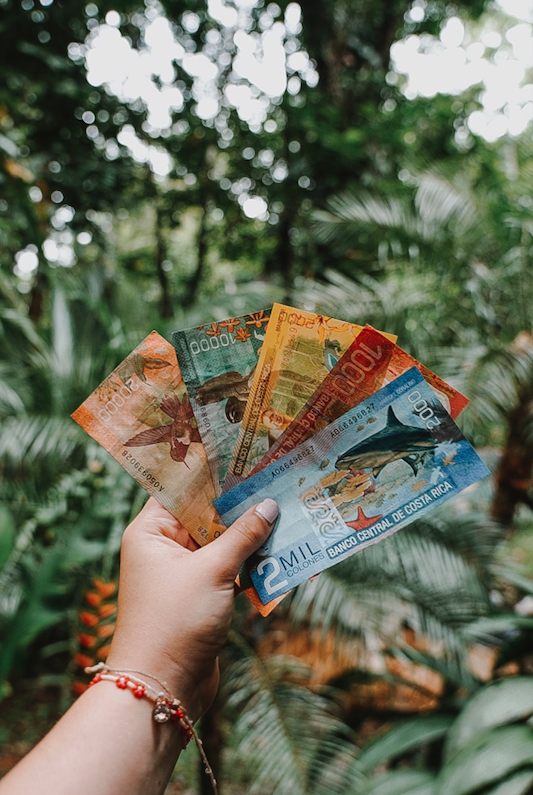
Have a few more questions for us?
We'd love to help you out! We have a team of representatives who have been on their own ILP semester (or two) and are here to answer any questions you may have — just send us a text!


